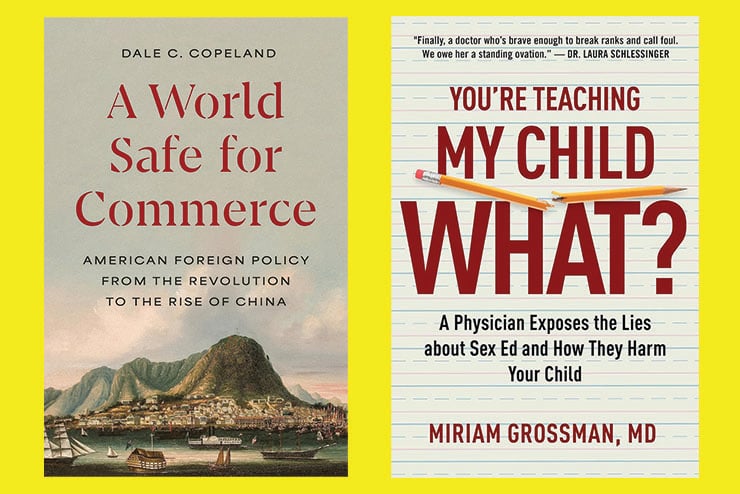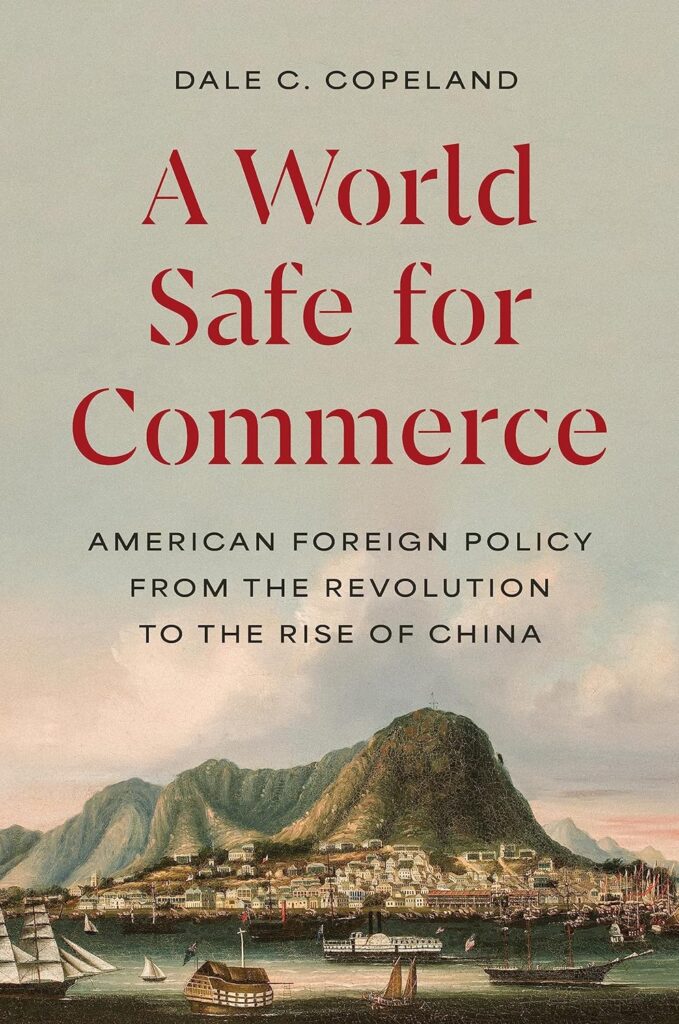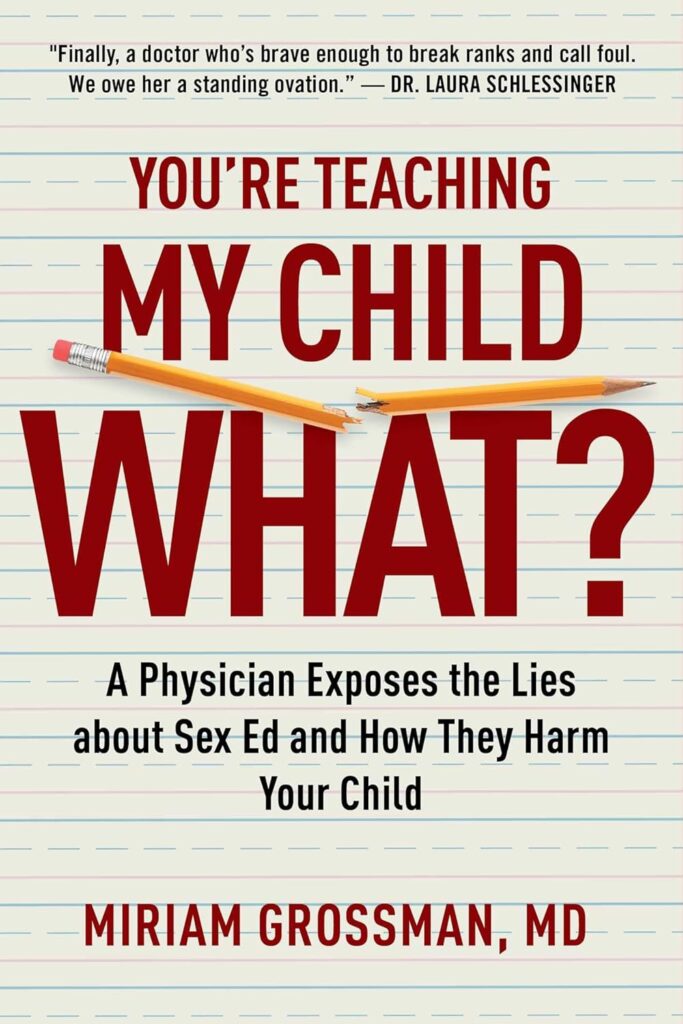A World Safe for Commerce: American Foreign Policy from the Revolution to the Rise of China, by Dale C. Copeland (Princeton University Press; 504 pp., $31.30). Woodrow Wilson’s April 1917 plea to Congress to “make the world safe for democracy” launched America on a futile messianic crusade that plagues us even today. Nowadays, “safe” includes spitefully flying the rainbow flag atop American embassies in traditionalist societies. But today’s foreign policy realists can take heart. In his most recent book, Dale C. Copeland tosses Wilson’s utopian definition of “safe” into the historical dustbin where it belongs.
In A World Safe for Commerce, Copeland shows how, for two and a half centuries, American policymakers acted as “careful calculators of national security,” looking at world events “through the lens of economic and commercial power.” These anti-Wilsonians prioritized access to goods and markets to “keep the economy and national security intact.”
Copeland’s delicate personal diplomacy, so rare in academic writing, revises our historical understanding without tarring him as a quarrelsome revisionist. Consider his analysis of the American Revolution. One historical camp attributes the war to British predations on American commerce, while the other camp, best embodied by Bernard Bailyn and Gordon Wood, claims “internalized ideas and ideals of liberty” galvanized the colonists to revolt. Without dismissing either of those schools, Copeland argues the British empire’s long-term survival depended on limiting the colonists’ “ability to organize their own imperial realm.” Britain’s defensive actions inadvertently ignited the colonists’ inchoate expansionist designs.
By 1898, President McKinley had declared war on Spain, but not out of an expansionist urge, as perfidious American history textbooks brainwash college students. Instead, McKinley saw the European colonial powers as “growing threats to U.S. commerce” in our near abroad, which Copeland calls our “realm one,” and in Asia, our “realm two.” McKinley had little choice in the matter, as he prudently sought to “ensure U.S. trade dominance into the future.”
Most refreshing of all, Copeland refutes the Wisconsin School’s neo-Marxists, whose anti-capitalist animus blinded them to historical facts he provides in abundance. Any scholar who punches Marxists in the face gets an “A+” from this grader.
Copeland ends with the ominous observation that the strength of our formidable nationalistic foe, China, is underpinned by racial homogeneity. Meanwhile, “Death to America” chants thunder across American campuses. Can a polarized society that fosters unpatriotic hatred survive?
(Mark G. Brennan)
You’re Teaching My Child What?: A Physician Exposes the Lies of Sex Education and How They Harm Your Child, by Dr. Miriam Grossman (Regnery; 256 pp., $18.99). Imagine a world in which serious diseases that could cause permanent disability or death are well understood by science and yet an extremist ideology prevents honest discussion about preventing them. In this bizarre world, authorities actively encourage people to engage in just the practices that maximize their chances of being stricken by disease.
This is contemporary America under the regime of the sexual revolution.
Miriam Grossman wrote this terrifying book 15 years ago; the paperback edition has just emerged. In that decade and a half, matters have grown substantially worse. Grossman begins with a mind-blowing example of the damage done by this health-indifferent sexual revolution. A young woman who has just learned she may have cervical cancer caused by HPV tells our author that “the pleasure I had with my partners was worth it.” That is the utterance of a deranged cult member, convinced by the lies of her leaders that her own destruction is a reasonable price to pay for the cult’s morally warped worldview.
The cultural left pretends rationality about the science of population and contagion when it comes to COVID-19, an illness that minimally affects the young. They completely throw that logic aside when the vast problem of sexually transmitted diseases upends the lives of young people. Incurable sexually transmitted viral diseases such as HIV, HPV, Hepatitis B, and genital herpes often have catastrophic effects. Chlamydia, which is becoming less treatable because of antibiotic resistance, can cause fatal ectopic pregnancies.
All of this is pooh-poohed by the sexual revolution industry, which claims the young will not be affected by such plagues so long as they use condoms. But condoms are frequently improperly used, often fail even when used correctly, and do not protect against skin-to-skin contact diseases. Oral contraceptives to prevent pregnancy are universally touted by the revolutionaries but are only 90 percent effective even as they are linked to increased risk of breast and cervical cancer.
The message about sex from our scientific establishment is brazenly nihilistic, generated by a callous disregard for the well-being of young people. Grossman’s book is a call to man the barricades in the fight against these enemies of health.
(Alexander Riley)



Leave a Reply